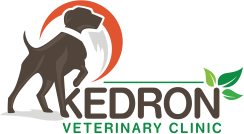Unveiling Silent Cat Diseases: Safeguarding Your Feline Companion’s Well-being
Caring for your beloved cat involves more than just providing food and shelter. It’s about being vigilant and knowledgeable about potential health threats. At Kedron Veterinary Clinic, we’re committed to empowering cat guardians like you with information to recognize and address these silent killers effectively.
1. Chronic Kidney Disease: A Stealthy Foe
Chronic kidney disease (CKD) stands as a leading silent killer in cats, characterized by impaired kidney function affecting 75% of both kidneys. Clinical signs may include:
- Excessive drinking and urination
- Changes in litter box habits
- Weight loss
- Halitosis
- Lethargy and hiding
With proper management, cats can thrive despite CKD. Treatment may involve dietary modifications, regular monitoring, increased hydration, and medication administration.
2. Hyperthyroidism: Unmasking the Metabolic Imbalance
Hyperthyroidism, an endocrine disorder, results from overproduction of thyroid hormone, typically observed in older cats. Symptoms may mimic CKD and include:
- Increased thirst and urination
- Vomiting and diarrhea
- Weight loss despite a ravenous appetite
- Cardiovascular complications
Early detection and intervention are key in managing hyperthyroidism. Treatment options include medication, surgery, prescription diets, or radioiodine therapy.
3. Diabetes Mellitus: Navigating the Blood Sugar Rollercoaster
Diabetes mellitus (DM) poses significant health risks for cats, especially those overweight or obese. Clinical signs parallel those of CKD and hyperthyroidism and include:
- Polyuria and polydipsia
- Changes in body condition
- Altered appetite
- Lethargy and weakness
- Vomiting and abnormal breath
Managing DM requires dedication to insulin therapy, dietary modifications, regular monitoring, and veterinary oversight to mitigate complications.
4. Cardiac Disease: Tackling Heart Health Challenges
Heart disease in cats often presents without audible murmurs, making diagnosis challenging. Symptoms may manifest as:
- Irregular heart rhythms
- Respiratory distress
- Fainting episodes
- Cold extremities
- Sudden paralysis or pain
Early recognition is crucial for initiating appropriate treatment, which may involve medication, oxygen therapy, and lifestyle modifications.
5. Cancer: Confronting the Unseen Threat
As cats age, the risk of cancer increases. Gastrointestinal malignancies, such as lymphosarcoma, are common. Look out for:
- Weight loss
- Changes in appetite
- Digestive disturbances
- Lethargy and hiding
- Fever and weakness
Timely diagnosis enhances treatment options and improves prognosis.
Empowering Cat Guardians: Taking Proactive Measures
Awareness and proactive care are paramount in safeguarding your cat’s health. Follow these tips:
- Maintain a safe indoor environment
- Opt for high-quality nutrition
- Prioritize preventive care, including regular veterinary check-ups
- Foster affection and mental stimulation
- Stay vigilant for subtle changes in behavior or health
Partnering with Kedron Veterinary Clinic: Your Trusted Ally
At Kedron Veterinary Clinic, we’re here to support you in providing the best possible care for your feline companion. If you notice any concerning signs or symptoms, don’t hesitate to reach out. Call us at (07) 3857 1785 or connect with us online to schedule an appointment.
